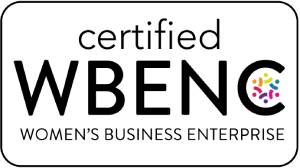 When your human wiring is “All Social,” your brain is naturally attuned to people, collaboration, and emotional harmony. You gain energy from social interactions and tend to prioritize relationships over confrontation. That makes you a powerful connector and morale builder. And, it can also create tension when leadership demands accountability—because to the All Social, holding someone to account can feel, well… mean.
When your human wiring is “All Social,” your brain is naturally attuned to people, collaboration, and emotional harmony. You gain energy from social interactions and tend to prioritize relationships over confrontation. That makes you a powerful connector and morale builder. And, it can also create tension when leadership demands accountability—because to the All Social, holding someone to account can feel, well… mean.
The truth is, it’s not.
In fact, avoiding accountability conversations can lead to more tension, confusion, and even loss of trust. The good news? You don’t need to change your wiring—you just need to lead from it with clarity.
The All-Social Misconception: Accountability = Meanness
Many with All Social wiring like to avoid discomfort and strive to “keep the peace.” You may hesitate to confront a colleague who misses deadlines, fearing it will damage the relationship. You might over-accommodate, thinking kindness means covering for others.
But here’s the irony: when you don’t address broken agreements, others may interpret it as indifference—or worse, enabling. And that doesn’t align with your true nature, which deeply values people.
Rewiring the Narrative: Accountability is Respect
Holding someone accountable isn’t a sign of harshness—it’s a sign of respect.
When you clearly communicate expectations and reinforce them, you show your team that you value their time, their work, and the shared goals you’re building together. Accountability creates clarity, and clarity is kindness.
Let’s consider a real example of leading with both sensitivity and firmness.
The CEO Who Waited—Then Led
A CEO with strong All Social human wiring factors once found herself in a situation many leaders will recognize. She entered a meeting and watched as her team continued to socialize—for 20 minutes—ignoring the scheduled start time. Rather than interrupt or express frustration, she waited patiently.
When she finally spoke, she calmly and professionally said, “I appreciate the connection happening here. And I also want to remind you we’re on the clock. Let’s shift into the agenda.”
Her tone wasn’t angry. It was clear, grounded, and respectful. After the meeting, several team members came to her and apologized. It wasn’t shame-based—it was accountability based on values. The team self-corrected, and the culture strengthened.
That’s leadership in alignment with All Social wiring. People still felt valued, but they also understood the standards.
How to Be Firm, Fair, and True to You
- Use Clear Language, Not Punitive Language
All Social wiring thrives on inclusive, respectful communication. Don’t be afraid to use phrases, like:
- “To get X result, let’s agree on how we’ll handle this moving forward.” This speaks to the “task” human wiring while also setting clear expectations on the result with team buy-in.
- “I know you’re committed, and I also want to make sure we’re all aligned.”
- “I care about this team, and part of that is making sure we honor what we say we’ll do.”
- Set Expectations Early—Then Follow Through
Avoiding future awkwardness starts with upfront clarity. Define roles, timelines, and consequences early. That way, when follow-up is needed, it doesn’t feel personal—it feels procedural. - Hold Space, Not Grudges
Accountability doesn’t mean emotional distance. It means you value the person enough to be real. If someone drops the ball, have the conversation quickly, clearly, and with curiosity, not judgment. - Leverage Group Agreements
All Socials shine in collaborative settings. So, use group-developed standards that everyone agrees on. That way, holding others to account isn’t “your rule”—it’s our rule. - Practice the “Gentle Mirror” Technique
This involves naming what you observe in a non-threatening way:
- “I noticed this is the third time the deadline slipped—what’s getting in the way?”
- “Can we walk through what happened so we can get back on track?”
Accountability Doesn’t Cancel Connection
If your wiring tells you, “If I push too hard, I’ll lose them,” remember this: when you lead with presence, professionalism, and people-awareness, you don’t push people away—you inspire them into action.
The goal isn’t to become someone you’re not—it’s to be fully who you are with awareness and structure. All Socials can be some of the most effective leaders when they embrace their ability to connect and be direct and clear.
Final Thought:
Being direct isn’t being mean. Stating clear expectations, goals, or desired outcomes is a form of respect—not harshness. When you communicate with clarity and purpose, you’re not being unkind—you’re being aligned.
The most effective leaders realize that truth and transparency build stronger, more trusting relationships than avoidance ever could.










